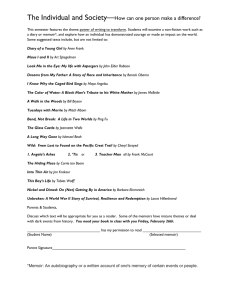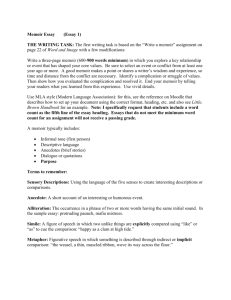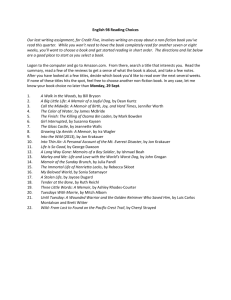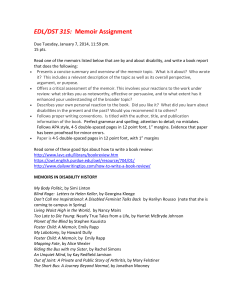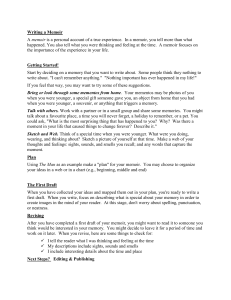WORKSHOP ON WRITING MEMOIR handouts on narration, description, and dialog.
advertisement
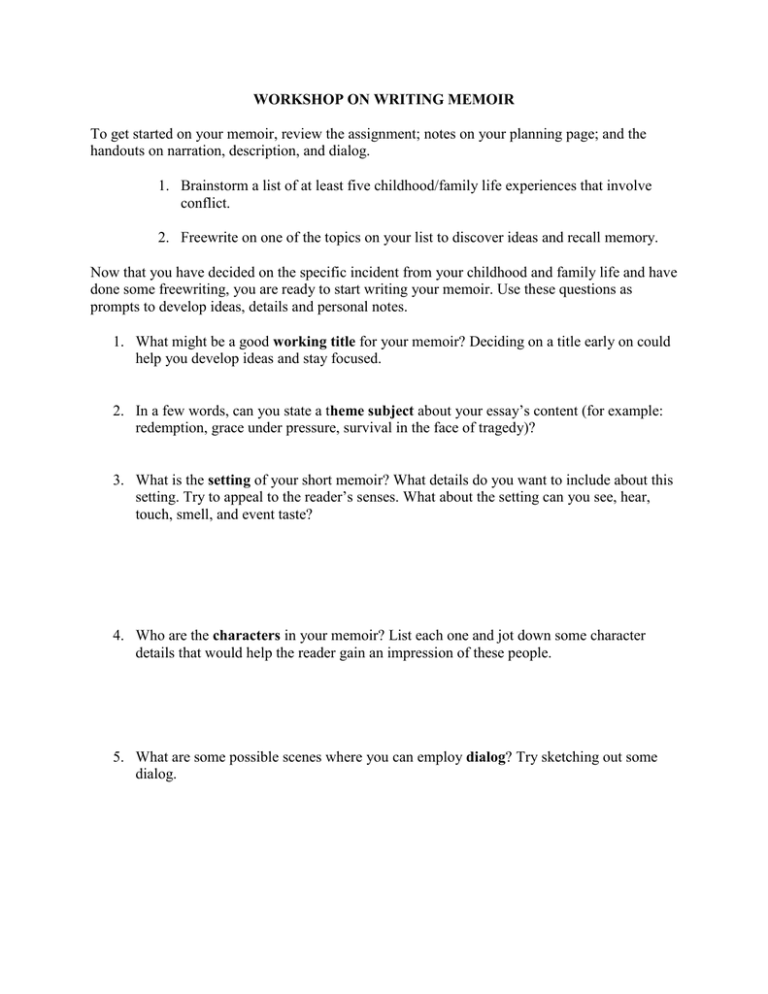
WORKSHOP ON WRITING MEMOIR To get started on your memoir, review the assignment; notes on your planning page; and the handouts on narration, description, and dialog. 1. Brainstorm a list of at least five childhood/family life experiences that involve conflict. 2. Freewrite on one of the topics on your list to discover ideas and recall memory. Now that you have decided on the specific incident from your childhood and family life and have done some freewriting, you are ready to start writing your memoir. Use these questions as prompts to develop ideas, details and personal notes. 1. What might be a good working title for your memoir? Deciding on a title early on could help you develop ideas and stay focused. 2. In a few words, can you state a theme subject about your essay’s content (for example: redemption, grace under pressure, survival in the face of tragedy)? 3. What is the setting of your short memoir? What details do you want to include about this setting. Try to appeal to the reader’s senses. What about the setting can you see, hear, touch, smell, and event taste? 4. Who are the characters in your memoir? List each one and jot down some character details that would help the reader gain an impression of these people. 5. What are some possible scenes where you can employ dialog? Try sketching out some dialog. 6. What is the conflict in your memoir? Your conflict, the heart of your story, is a clash of forces between you and __________________? Is your conflict internal or external? Do you have several conflicts to dramatize in your memoir? If so, what are they? 7. What background details do you want to include in your exposition? 8. How does your rising action (conflict) begin? 9. List some of the events, scenes, chain reactions that occur as your plot develops. 10. Will you use foreshadowing to create suspense? If so, how? 11. Will you use any flashbacks in your memoir? Where and how will you handle flashbacks? 12. What is the climax of your story? 13. Does your story include a sudden understanding, and epiphany (moment of “a ha!”)? If so, what is it? 14. Does your conflict reach a resolution? If so, explain. Or is conflict not resolved? If not, explain. 15. How will you give your essay closure? Will you leave the reader with a “lesson learned” or a vivid impression? What will you include in your denouement? 16. Will your essay contain any irony in plot or characterization? If so, what?
